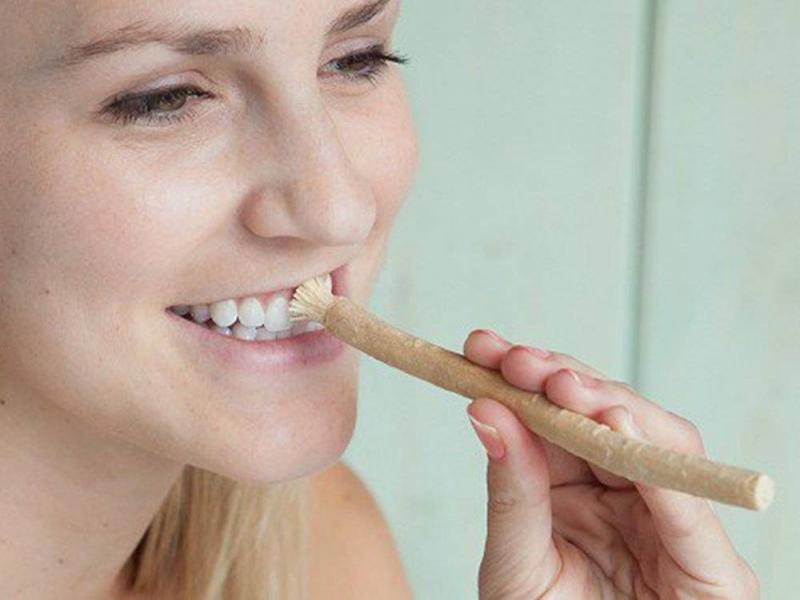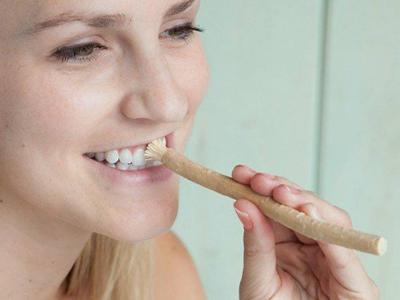Every year, with the arrival of the blessed month of Ramadan, there is an increased demand for the siwak stick, reflecting the Sunnah of the Prophet, who encouraged its use in his saying, "Siwak purifies the mouth and pleases the Lord." The Jazan region is known for its abundance of "arak" and "beshm" trees that produce siwak, and these two trees are now being promoted by countries due to their medical and economic value, as well as the numerous components and effective properties recognized by many in the medical and pharmaceutical industries. The arak tree is scientifically known as "Salvadora persica" or the toothbrush tree. It is characterized as a perennial, evergreen tree that is resistant to salinity and can withstand various weather conditions. Siwak is extracted from its roots, made up of dense, soft fibers resembling a brush, which is used by cutting the head of the siwak and removing the outer bark from the desired part with scissors or a knife, slightly moistening it for use in cleaning the mouth and teeth.
The beshm tree, also known as "blasan" or "bilsan," is distinguished by its fragrant scent when its leaves are rubbed or a branch is taken. Beshm trees proliferate in mountainous regions, reaching heights of up to four meters. They are dioecious with compound, alternating, feathery leaves consisting of 3 to 5 leaflets and red flowers. The trunk and branches ooze a resinous liquid with a refreshing aroma when cut. Beshm branches are used as siwak and are considered one of the best forms of siwak after arak; some even prefer it over arak due to its aromatic smell. The bark's outer layers contain a resinous aromatic substance used as a disinfectant for wounds and for killing bacteria.
During Ramadan, there is a noticeable increase in siwak prices and heightened demand from traders of this commodity, preparing to supply sufficient amounts across the Kingdom. The price of a bundle of siwak during Ramadan can rise from 100 riyals in ordinary times to 300 riyals for the premium types, which help refresh the breath of fasting individuals, aid in tightening loose gum tissues, and treat mouth ulcers and gum sores. They are characterized by their soft and fragrant fibers and do not cause any scratches or harm to the gums as synthetic toothbrush fibers might.
Several siwak sellers in the Jazan region noted that siwak is often taken from arak roots aged between two and three years, with the price of siwak extracted from soft arak trees being high; if it becomes dry, the price decreases. The siwak from the beshm tree is simply a branch from the soft beshm tree that grows in mountainous areas. They also pointed out that siwak sales occur year-round, with intensified competition during Ramadan.




